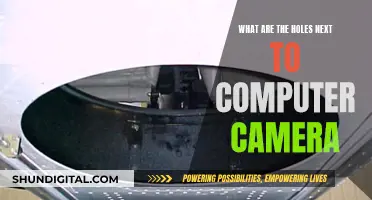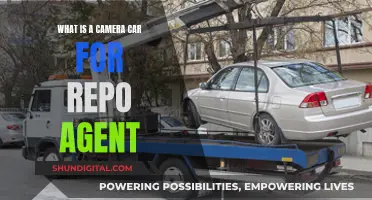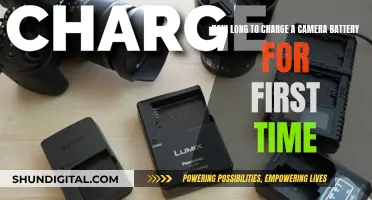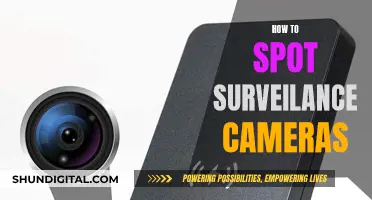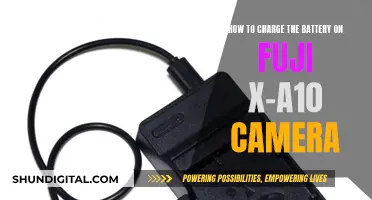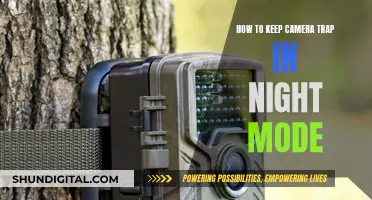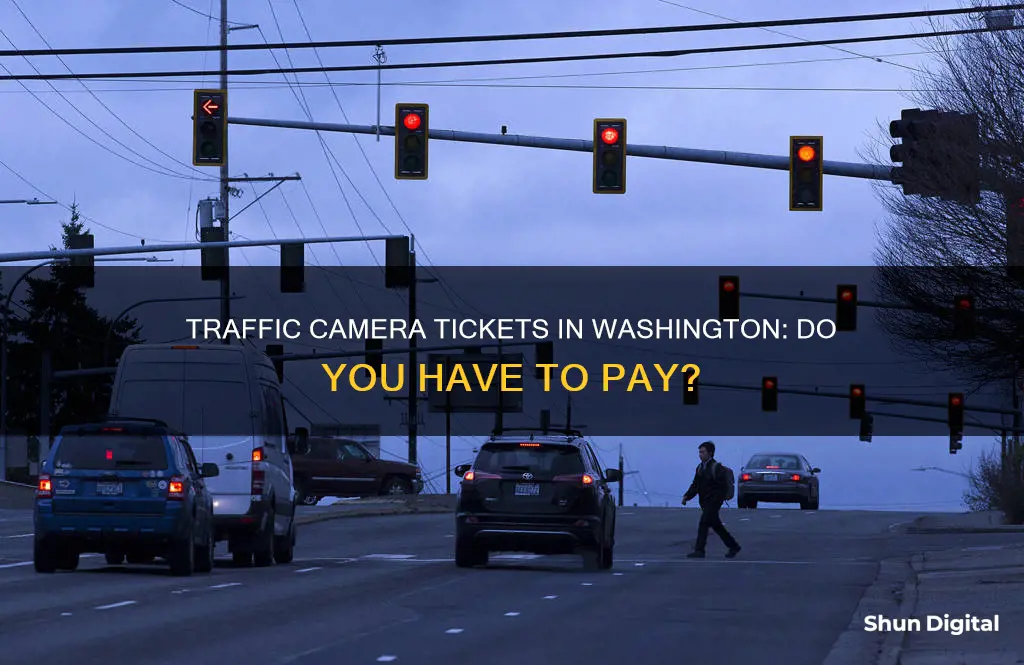
Traffic camera tickets in Washington are issued for speeding in school zones, failure to stop at a traffic light, and other traffic violations. These tickets are treated similarly to parking tickets and do not appear on driving records or impact insurance rates. However, failure to pay may result in a hold on vehicle registration and collections action. Recipients can choose to pay the fine or contest the ticket through a hearing, with the option of submitting a declaration of non-responsibility if they were not the driver.
| Characteristics | Values |
|---|---|
| Ticket type | Camera tickets, red-light camera tickets, school zone camera tickets |
| Ticket issuer | Washington State Legislature, Seattle Municipal Court |
| Ticket reasons | Speeding, running red lights, passing a stopped school bus, obstructing traffic, failure to stop at a traffic light |
| Ticket payment methods | Check, online, phone, mail, in-person |
| Ticket payment locations | Online, King County District Court courthouse, Seattle Municipal Court |
| Ticket fine amount | Varies, may be eligible for a 50% reduction if receiving financial assistance from the state |
| Ticket response options | Pay fine, request a contested hearing, request a mitigation hearing, submit a declaration of non-responsibility |
| Ticket consequences | Will not appear on driving record or impact insurance rates, may affect vehicle registration renewal |
| Ticket notification methods | |
| Ticket evidence | Photo and video |
What You'll Learn

Camera tickets are treated like parking tickets
If you receive a camera ticket, you will be notified by mail within 14 days of the violation. The ticket will include a list of instructions on how to proceed if you choose to fight your ticket. You can contest the ticket by requesting a contested hearing, or you can ask for a mitigation hearing, where you can explain your circumstances to the judge and request a reduction in the fine.
It is important to note that camera tickets are legally equivalent to parking tickets. This means that failure to pay will not result in a license suspension, but it can result in a collections action and a hold on registering your vehicle. The fine for a camera ticket is treated as a parking ticket and cannot exceed the amount of a fine issued for other parking infractions within the same jurisdiction.
If you were not the driver at the time of the violation, you can file a Declaration of Non-Responsibility. This is a sworn statement under penalty of perjury that the vehicle was not in your care, custody, or control at the time. You do not need to identify the actual driver unless you are a rental car company or another legal entity required to report this information.
Samsung Note 8: Night Mode Camera Feature Explained
You may want to see also

They don't impact insurance rates or driving records
If you've received a traffic camera ticket in Washington, you might be wondering how it will impact your insurance rates and driving record. The good news is that, in Washington, camera tickets are treated similarly to parking tickets. This means that they will not go on your driving record and will not affect your insurance rates.
Camera tickets are typically issued for speeding in school zones or failing to stop at a red light. While they don't impact your insurance or driving record, it's important to note that you are still responsible for paying the fine associated with the ticket. If you don't pay, you may face consequences such as a hold on your vehicle registration or difficulties renewing your license plate.
To pay your ticket, you can either send a check by mail or pay online, over the phone, or in person at a court office. Each ticket will have instructions on how to pay and information about your options if you want to contest the ticket.
It's worth mentioning that while camera tickets don't impact insurance rates or driving records, they are still a financial burden and can cause inconveniences with vehicle registration and license plate renewal if left unpaid. So, it's important to review and address any camera tickets you receive.
If you have any questions or concerns about a traffic camera ticket you've received in Washington, it's always a good idea to seek clarification from official sources or legal professionals who are familiar with the specific laws and regulations in the state.
Troubleshooting Camera Focus Issues: What You Need to Know
You may want to see also

Failure to pay may affect vehicle registration
In Washington, camera tickets are treated like parking tickets and do not go on your driving record. However, failure to pay a camera ticket can have consequences for vehicle registration.
If you receive a camera ticket in Washington, it is important to understand that it is still a legal requirement to pay the associated fine. Camera tickets are issued for a variety of traffic violations, including speeding in school zones, failing to stop at a red light, and obstructing traffic. While these infractions will not appear on your driving record or impact insurance rates, unpaid tickets can affect your ability to renew your vehicle registration or tabs.
In Seattle, unpaid camera tickets may cause the Department of Licensing (DOL) to place a hold on your vehicle registration. Similarly, in King County, failure to respond to a photo enforcement ticket may impact the renewal of your license plate. This means that if you have outstanding camera ticket fines, you may be unable to register your vehicle or obtain updated license plates.
To avoid these consequences, it is important to address camera tickets promptly. If you believe you have a valid reason for contesting the ticket, you can request a hearing. Alternatively, you may be able to set up a payment plan to pay off the fine over time. By taking appropriate action, you can help ensure that your vehicle registration remains in good standing.
In summary, while camera tickets in Washington are not recorded on your driving record, failure to pay these tickets can affect your vehicle registration. To maintain your driving privileges and avoid further penalties, it is crucial to address camera ticket fines in a timely manner.
Bird's-Eye Camera: A Car Feature Worth the Hype?
You may want to see also

You can contest a camera ticket
Yes, you can contest a camera ticket in Washington State. Here is a step-by-step guide on how to do it:
Step 1: Review Your Ticket
Check the date, time, and location of the ticket. Because camera tickets are sent to the owner of the car, not the driver, make sure you were actually driving the car when the ticket was issued. Also, make sure that all the information on the ticket is correct and that the make of your car is listed accurately.
Step 2: Examine the Evidence
Review the video and photos that come with your ticket. Confirm that it is your car in the photo and that the photo is clear. Blurry photos or unclear license plates may be grounds for dismissal. If there is no clearly identifiable photo of you in the driver's seat, the prosecution cannot prove you were driving.
Step 3: Plead Not Guilty
You must plead not guilty if you want to dispute the ticket. You can do this by mail, online, or in person at an arraignment or first appearance hearing. Check your citation and plead not guilty before the deadline, which is typically within 30 days of receiving the ticket.
Step 4: Request a Formal Hearing
When you plead not guilty, demand a full formal hearing or trial. You may also have to attend other hearings such as pre-trial hearings or mediations. Do not accept anything less than a full dismissal of your ticket.
Step 5: Gather Evidence
Request copies of photos and videos from law enforcement if they were not included with your citation. Also, request maintenance records for the camera, as well as the traffic light or speed monitoring system, to establish that they were regularly monitored and maintained. Gather any other evidence that may support your case, such as eyewitness statements or technical issues with the camera.
Step 6: Research Applicable Law
Look for cases in your city or county about traffic cameras, and see if any appellate court decisions have ruled on the legality of traffic camera tickets. Research possible defenses, such as specific rules about where warning signs must be posted for traffic lights, or a necessity defense for speeding.
Step 7: Attend Your Hearing
Arrive at the courthouse on the day of your hearing with copies of any documents you intend to use as evidence. Treat the judge and courthouse staff with respect, and present your case clearly and concisely.
Step 8: Challenge the Evidence
You can challenge the admissibility of the photograph as hearsay, or object to its use for lack of foundation if no one from the company that maintains the camera shows up to testify. Dispute the authenticity of the photograph and argue that the prosecution cannot prove it was you driving the car, especially if the traffic light was not functioning properly.
Step 9: Raise Other Defenses
If your challenges to the camera evidence fail and the photos are admitted as evidence, use any other defenses you may have found in your research. For example, if warning signs were obscured or not present, or if you were speeding out of necessity to avoid harm, you may have a valid defense.
Linking Your Tablet: Using Bluetooth Cameras in Your Car
You may want to see also

You can declare non-responsibility if you weren't driving
If you receive a traffic camera ticket in Washington but were not the person driving, you can declare non-responsibility. This is a sworn statement under penalty of perjury that the vehicle was not in your care, custody, or control at the time of the violation.
The process for declaring non-responsibility varies depending on the city in which the ticket was issued. In Seattle, you can file a Declaration of Non-Responsibility online or by mail, email, or fax. The form can be downloaded from the Seattle Municipal Court website, and must be returned by the due date shown on the front of the notice of infraction.
It's important to note that companies, organizations, or employers cannot file a declaration of non-responsibility. A vehicle driven by an employee is considered to be in the "care, custody, and control" of the registered owner or employer.
While you can declare non-responsibility without identifying the actual driver, some courts may call you into the courtroom to state under oath that you were not driving. In such cases, you still do not have to identify the person who was driving.
Bing Camera Battery: What Powers These Devices?
You may want to see also
Frequently asked questions
Yes, you are responsible for paying camera tickets. If you don't pay, you will not be able to renew your vehicle's registration or tabs.
If you don't pay your camera ticket, you will not be able to renew your vehicle's registration or tabs. There may also be a hold on registering your vehicle.
No, camera tickets are treated like parking tickets and will not appear on your driving record. They will also not impact your insurance rates.


